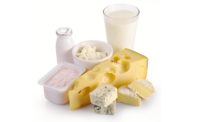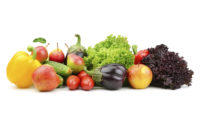Research reveals snack meals on the rise
While most snacks are consumed from home by 81% of Americans, 31% say they snack at the office as well.

Whether at home, at work, in the car or on the go, “snack meals” are on the rise. That’s because 86% of Americans eat snacks in place of meals, according to a new nationwide survey of 2,000 adults (ages 18 and over), commissioned by Farm Rich, St. Simons Island, Ga.
The survey also found:
- Three quarters of Americans no longer eat a traditional breakfast, lunch and dinner.
- The average person today eats two meals and three snacks a day.
- Men are more likely to still consume a traditional three meals a day.
- Lunch is the meal most often replaced with snacks.
- 81% of Americans consume snacks while at home.
- The most popular items for snack meals include cheese, crackers, fruit and chips.
With busy schedules not allowing time for meal prep and cooking, as well as health factors and a desire for more variety in their diets, people are shifting away from a classic meal structure as the ease of smaller snack meals is often a better fit for their day. For instance:
- Almost half (49%) of respondents say they replace lunch for snack meals.
- Peak snacking hours are between 1-4 p.m.
- The average person eats five snack meals each week.
While most snacks are consumed from home by 81% of Americans, 31% say they snack at the office as well.
“The growth of digital streaming and desire for quick foods that fuel us have led to an increase in snack consumption, especially at home,” says Shannon Gilreath, director of marketing. “People are no longer feeling bound to the traditional three meals a day, which gives them more variety and time back to do the things they enjoy most, and for many, that doesn’t involve a ton of time in the kitchen, especially on busy days.”
When eating small plates or snack meals, people are most often reaching for cheese, crackers, chips, veggies, meat proteins (such as deli meat), fruit, nuts, yogurt, followed by a variety of frozen foods and snacks such as mozzarella sticks, chicken nuggets, sliders, pizza bites and potato skins.
Millennials are most likely to participate in the idea that “three standard meals a day is a thing of the past,” consuming snacks to take the place of a meal at least six times a week and eating at least six snacks while on the go during that time. Twenty percent of Millennials are also eating snacks on their feet while running errands. When it comes to this group, snacks are for energy, not just cravings. Two in five reach for snacks to fuel them throughout their day, compared to just one in five older adults (55 and older) who seek snacks for an extra pep in their step. Instead, 60% of older adults use snacks to curb cravings.
Almost half of all respondents (45%) prefer the microwave when preparing foods for snacks or snack meals over the conventional oven, toaster oven, air or deep fryer.
While 49% of respondents turn to snack dinners due to the lack of time they have to plan, prepare and sit down to a meal, there are other reasons shoppers are turning to quick meal solutions, like the freezer aisle:
- 35% eat snack dinners to reduce food waste.
- For 31%, snack dinners are a way to offer more variety at meal time.
- 33% shop the freezer aisle at least once a week.
- Not by coincidence, the frozen foods segment of grocery store shopping has seen strong growth over the past 12 months
“Snacking gives flexibility to busy families and individuals with untraditional schedules,” Gilreath adds. “This shift toward enjoying an all-snack meal or snacks on the go speaks to changing lifestyles, and the grocery freezer is a great resource for foods that offer the ease, long shelf life, variety and sustenance people sometimes need.”
Other key findings from the survey:
Top 10 foods that make up 'small plates' or 'snack meals'
- Cheese
- Crackers
- Fruit
- Chips
- Nuts
- Veggies
- Yogurt
- Sweets
- Pretzels
- Frozen Mozzarella sticks
Top 5 reasons to snack
- Cravings
- Taste/flavors
- Enjoyment
- Fuel/energy
- Boredom
Top reasons for purchasing frozen foods
- Convenience and quick preparation
- Long shelf life
- Affordability
- Taste and flavor
- Minimal effort to prepare
The Farm Rich-sponsored survey was conducted in August by OnePoll, UK, with a sample of 2,000 adults aged 18 years and over.
Looking for a reprint of this article?
From high-res PDFs to custom plaques, order your copy today!






